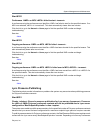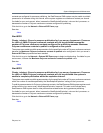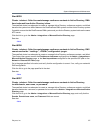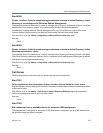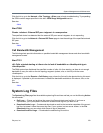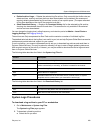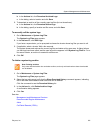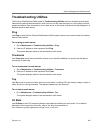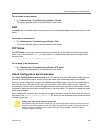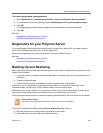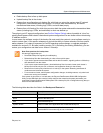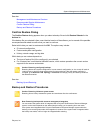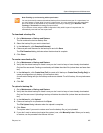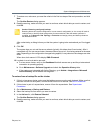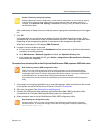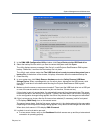
System Management and Maintenance
Polycom, Inc. 383
To run iostat on each server
» Go to Maintenance > Troubleshooting Utilities > I/O Stats.
The system displays results of the command for each server.
SAR
Use SAR to see a complete system activity report (from the preceding midnight to the current time) for each
server.
To run sar on each server
» Go to Maintenance > Troubleshooting Utilities > SAR.
The system displays results of the command for each server.
NTP Status
Use NTP Status to see a list of clock sources known to each server (including the local clock) and their
status. It runs the command ntpq -p on each server. For detailed information about the output of this
command, see:
http://nlug.ml1.co.uk/2012/01/ntpq-p-output/831
To run ntpq -p on each server
» Go to Maintenance > Troubleshooting Utilities > NTP Status.
The system displays results of the command for each server.
Check Configuration Synchronization
Use Check Configuration Synchronization to find if there are any parts of the system configuration not
correctly synchronized across all servers in the supercluster, and automatically repair the problems.
When you make configuration changes to the RealPresence DMA system, they are first stored locally on
one of the servers in the supercluster, and synchronized soon after with the other servers. There are
circumstances (usually due to network outages) where the local server can lose synchronization and the
configuration becomes inconsistent between servers in the supercluster. This feature can detect and repair
these inconsistencies.
When configuration synchronization checking is complete, the system stores the output from the analysis
and repair in the configsynccheck-<date>.log file, which you can download as part of the active and
archived system logs.
Caution: May temporarily increase system load
This operation may take several minutes and may consume significant memory and CPU resources.
Polycom recommends against invoking this utility during peak traffic periods or while other resource
intensive tasks are underway (such as system backups, CDR downloads, or Microsoft Active
Directory integration updates).



